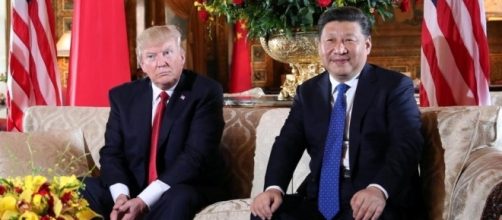Representatives for Xi Jinping say their President plans to lift China’s 13-year-old embargo on beef coming from the U.S. They also mentioned that he would also be purchasing more grain and other agricultural goods from the United States. This relief comes with a package deal to improve the stakes that U.S. financial organizations hold in China’s security and economic asset groups. This kind of opportunity with China comes after Presidents Trump and Xi had a meeting for two days in Florida at Trump's famous Mar-a-Lago resort last week.
Numerous features to the offers were already planned to be supplied to the U.S.
before Trump ever took his seat in the White House. Stock market professionals assert that this undeniably represents a victory intended for Trump's administration.
Things reflected from the summit
Several days ago, Trump tweeted that it was obviously an extraordinary honor to have the Chief Executive of China at his house and that a friendly companionship formed between him and the Asian political frontrunner. He further posted on Twitter, “But when it comes to trade, only time tells what will happen with that."
Shortly after the Presidential Inauguration, Donald Trump threatened China with potentially imposing a 45 percent tax increase set on the country's imports and has utilized such vague rhetoric while accusing China of taking out substantial amounts of money and riches from the U.S.
in trades that often appeared to be one-sided. Trump’s tax threat initially began to ignite a trade battle over commerce shortages totaling more than $300 billion that the United States obtained with China. According to experts specialized in international business, the campaign could have potentially destroyed the economies of both China and the U.S. if implemented.
They firmly believed that if Trump wanted to tax all imports coming into the U.S. from China, the country could form a response by imposing their taxes too as well on American imports coming into their county.
Michael Plouffe, a specialist in international financial plans, told Yahoo News, “The rhetoric that President Trump presents won’t lead to positive financial gain.” Plouffe also says that the politician's informal agreement between them makes certain situations less complicated for American supplier.
He also believes that competitions surrounding China’s imports could also be a result most likely to happen from the conference that occurred last week in Mar-A-Lago.
Reactions to China lifting its U.S. meat ban
China offered to ease the embargo that has lasted for more than a decade following the summit. It no longer plans to target American beef products. Instead, the nation wishes to seek more investment options with the United States by opening more of its financial market to them.
Plouffe stated on Yahoo, “I believe it's in both parties’ greatest interest to remove the distance they choose to have between each other. That most definitely would be a win.”
Last Friday, after President Trump and Jinping met, U.S.
Secretary of Commerce, Wilbur Ross, stood alongside the Secretary of the U.S. Treasury, Steve Mnuchin, and State Secretary Rex Tillerson and agreed to a policy intended to last 100 days for trading between the United States and China. The agreement foretells whether they will rebalance both exports and imports between each other.
Although Ross recognized it is a profoundly short amount of time for investment negotiations, Tillerson declared that Trump undermined China's need to consider more definite steps to get American workers during his 48-hour meeting with Xi Jinping. The Secretary of State stressed the benefits of reciprocating market access more frequently.
Jinping initially negotiated with Obama
The U.S. Department of Commerce requested for a brief review and confirmation of China’s offer but haven’t been granted that yet. Donald Trump hasn’t quite declared whether he’s willing to accept any business propositions with China.
However, once again, these agreements being talked about now were in political plans to be implemented way before President Trump even met President Xi.
After Xi Jinping had negotiated with the former executive in chief, Barack Obama, Chinese suppliers were already willing to open up more to American investments through U.S. financing companies.
One of Xi’s representative during the summit even affirmed to Yahoo News, “We would’ve been there already had Obama spent six more years in the White House.”
China started lifting the ban from 2003 last September on some cattle products from the United States.
However, in a letter addressed to President Trump, The National Beef Association for Cattlemen mentioned to him that American meat remains locked within the embargo because the conditions that grant supplier's entry into the Chinese marketplace have yet to come to a resolution.
The only thing definite probably emerging from the summit in Mar-A-Lago at this point is Trump agreeing to travel to China to visit the country later on this year.

